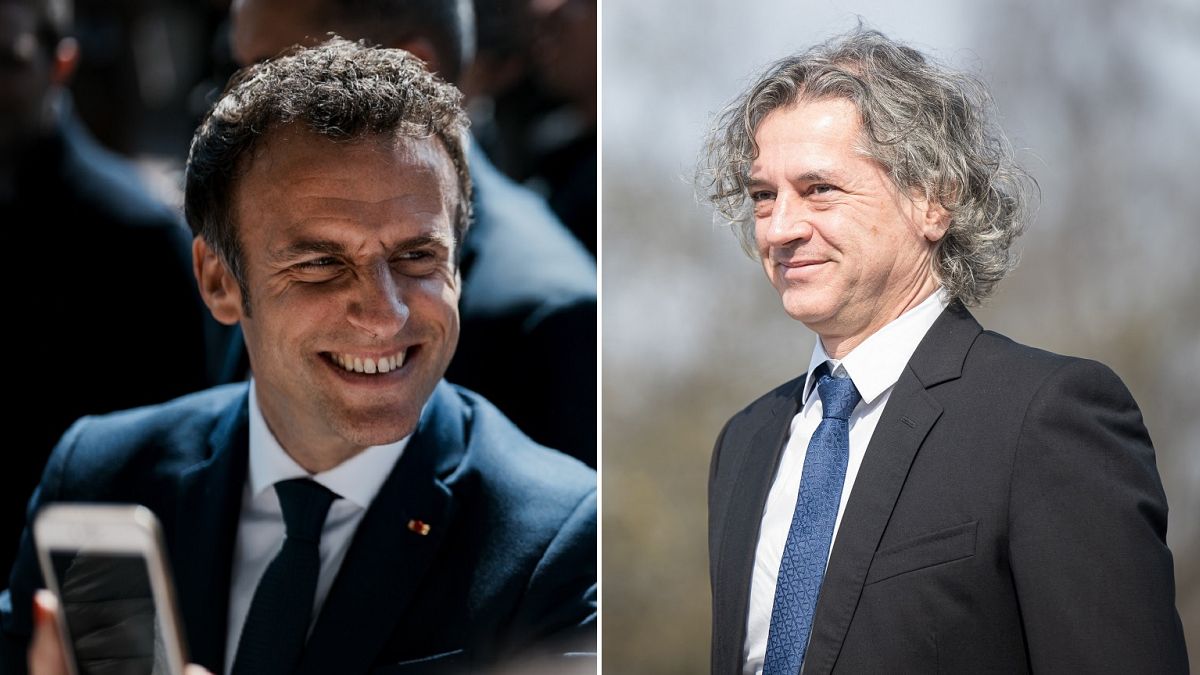There were congratulatory messages across the EU27 as French voters backed Macron over Le Pen, and people in Slovenia preferred liberal newcomer Robert Golob to populist PM Janez Janša.
Brussels breathed a sigh of relief on Sunday evening as voters in France and Slovenia shunned nationalists to back pro-EU leaders.
Congratulatory messages from across the 27 country bloc abounded for Macron, who beat far-right leader Marine Le Pen in the second round with 58.54% of the vote to 41.46%.
Brussels chief Ursula von der Leyen declared herself eager to continue to "move France and Europe forward" together with the French leader, while Olaf Scholz, Chancellor of Germany — whose country's close cooperation with France is often described as the EU's "motor" — said French voters had "sent a strong commitment to Europe".
EU Council President Charles Michel offered Macron a "bravo" on Twitter, adding that "in these troubled times, we need a strong Europe and a France fully committed to a more sovereign and strategic European Union", while Italian Prime Minister Mario Draghi said his re-election is "great news for all of Europe".
France: 'Ambitious project for Europe'
The 44-year-old French leader is an unabashed EU enthusiast and celebrated his first-ever electoral victory in 2017 to the tune of Ode to Joy, the EU's official anthem.
But his pursuit of further integration and unity in several domains including in defence and industrial sovereignty as well as geopolitical positions on Russia and towards enlargement had at times ruffled feathers across European capitals. But the COVID-19 pandemic and the war in Ukraine have quietened some of his detractors.
In his short victory speech on Sunday, the re-elected president mentioned Europe only twice to thank voters who "placed their trust in me to bring about our project for a more independent France and a stronger Europe".
He added that they had "chosen a humanist project, ambitious for the independence of our country, for our Europe".
For Tara Varma, Head of the Paris office of the European Council on Foreign Relations (ECFR) think tank, "Macron’s victory means the pursuit of an ambitious project for Europe".
"He will be advocating to double down on the European sovereignty agenda: on tech, on defence, on fighting economic coercion," she added.
She stressed however that "Macron now needs to adjust his method when it comes to defending its European agenda. He should strive for a more inclusive, participatory Europe."
Eric Maurice, the head of the Brussels office of the Robert Schuman Foundation, expects that the priority for Macron will now be the war in Ukraine and its consequences for the bloc.
"The questions for Europe: Defence and how to curb inflation? How to get out of oil and Russian gas? The question of sanctions also on Russia. And then, more specifically, France presides over the Council of the European Union. There are certain projects to be carried out, notably the question of the carbon mechanism at the borders for the climate transition," he explained to Euroonews.
Slovenia: 'Significant win for democracy'
Meanwhile, a small political earthquake took place in Slovenia where the electorate ousted the right-wing populist Janez Jansa in favour of Robert Golob, a relative political novice at the helm of a newly-rebranded green formation.
His Freedom Movement, which polls had put neck and neck with the ruling party in the run-up to the election, ended up capturing 34.5% of ballots vs 23.6% for Jansa's Social Democratic Party (SDS).
"I believe that the Freedom Movement party’s victory is a significant win for democracy in the clash of liberal and illiberal forces that Europe is currently experiencing," Gosia Piaskowska, programme assistant in the European Power Programme at the European Centre for Foreign Relations (ECFR), a think tank, told Euronews.
"It also shows an important counter mobilisation to the undemocratic, far-right ideologies that have been rising to prominence in European politics," she added.
John O'Brennan, Jean Monnet Chair of European Integration, concurred, labelling Golob's victory as "just as interesting and important, potentially as the French result, because here we had a Viktor Orban like figure in Prime Minister Janez Jansa, defeated very comprehensively and somewhat unexpectedly."
"It is at least the third big defeat for populist right-wing leaders in Europe over the last six months, including that of Boyko Borisov in Bulgaria and Mr Babish in Czechia. So, you know, you put those things together, I think you can see that the centre in Europe is perhaps far more strong than people had expected it to be," he told Euronews.
Jansa had been accused of weakening the rule of law in his country with repeated attacks on independent media, civil society and the judiciary, including by introducing laws that would in practice have sheltered fraudsters of EU funds from criminal prosecution.
In his victory speech, Golob, a former state secretary for energy and solar energy expert, said that "our goal of bringing freedom to the country has been achieved" while his party's vice-president Marta Kos enthused that small eastern nation "will not disappoint" the EU anymore.
"Slovenia will be an even stronger pillar of these partnerships. You will never hear the word illiberal democracy from our mouths, there is only one democracy and we will re-establish it," she said.
For Piaskowska, "Rober Golob’s pro-European and environmentalist agenda could potentially shift Slovenia’s role in the European Union from a troublemaker to a prominent advocate for climate action and rule of law."
Yet, perhaps due to France's economic and geopolitical might which captured attention, few congratulatory messages have surfaced on social media.
Slovenia's representative at the Commission, Janez Lenarcic, in charge of Crisis Management, and the European Civil Protection and Humanitarian Aid, was among the few who offered his "congratulations to Robert Golob".
"I look forward to working with the future government - for a successful and respected Slovenia, which will be a strong advocate of the fundamental European values," he wrote on Twitter.
The Freedom Movement is likely to strike a coalition deal with smaller centre-left groups.
